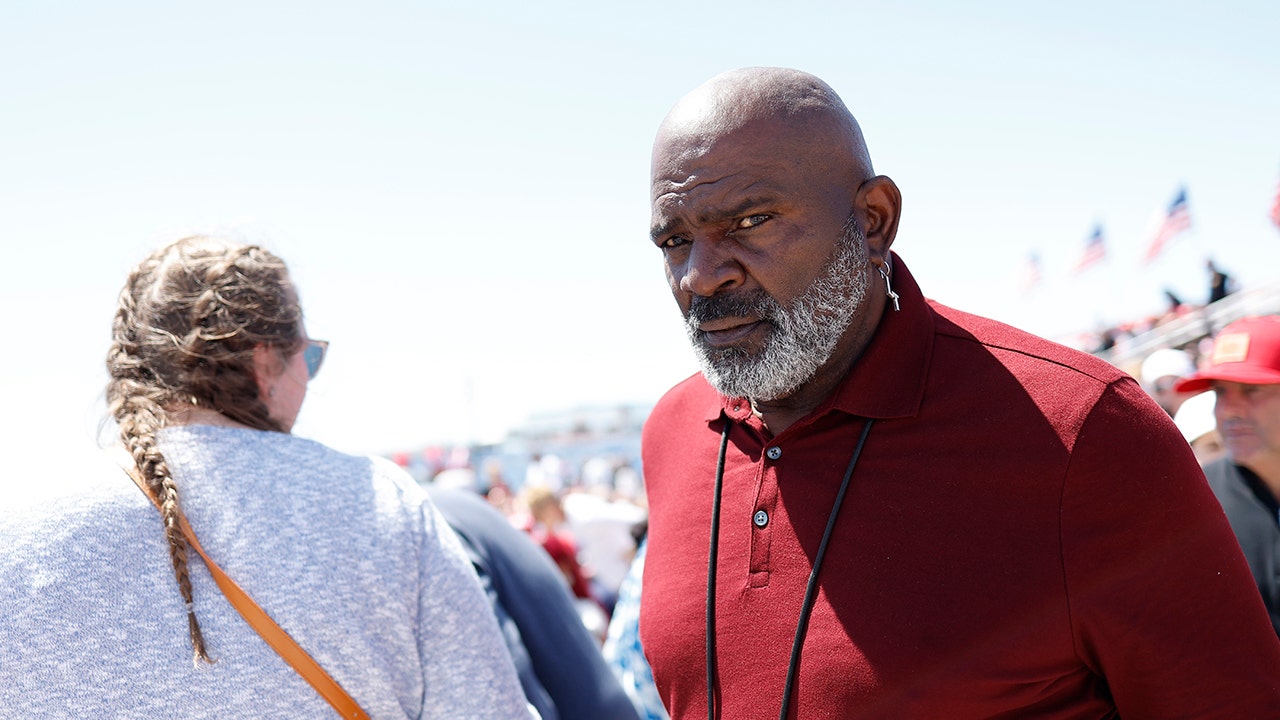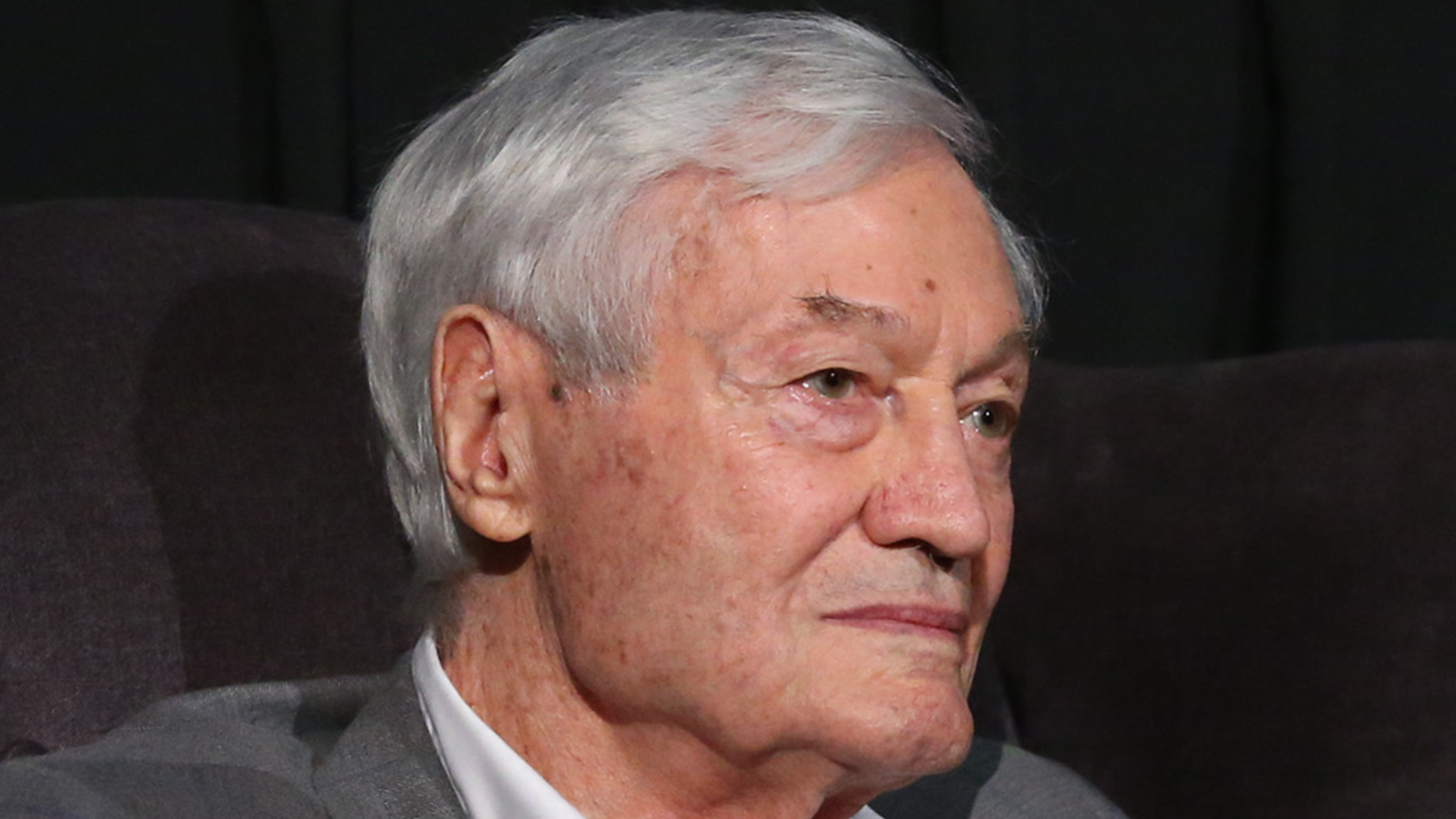Florida
California Disney characters are unionizing decades after Florida peers

ORLANDO — During three years of working as a parade performer at the Disneyland Resort in Southern California, Zach Elefante always has had a second or third job to help him earn a living.
Unlike the experiences of his peers at Disney’s parks in Orlando, where there is a much smaller talent pool, the performers who play Mickey Mouse, Goofy and other beloved Disney characters at the California parks aren’t always provided a consistent work schedule by the company.
It’s among the reasons the California performers are organizing to be represented by a union now, more than four decades after their Florida counterparts did so.
While Disney asks character performers to be available to work at any time, that demand isn’t always rewarded with scheduled work hours, the California performers said.
“A lot of performers get the sense that if they don’t give their full availability, we won’t be in shows … and that will impact other jobs we need to sustain a living in this area,” said Elefante, who lives in Santa Ana, California.
Earlier this month, the California character performers and the union organizing them, Actors’ Equity Association, said they had filed a petition for union recognition.
It’s a different era and a different union doing the organizing this time around, so the California character and parade performers likely will avoid some of the bad blood that the Disney performers in Florida have experienced with their union, the International Brotherhood of Teamsters.
It has been a rocky four-decade marriage in Florida between the performers who put the “magic” in the Magic Kingdom and the Teamsters, a union historically formed for transportation and warehouse workers which had deep ties to organized crime until the late 1980s.
Why now for the California character performers, so many decades after their Florida counterparts organized? Unlike in Florida where performing as a character often is a full-time job, many of the character performers in Southern California have multiple other gigs, often in Hollywood movies and TV.
Elefante performs at rival Universal Studios Hollywood and works as a tour guide for the movie studios. In addition to performing in the “Fantasmic!” show at Disneyland, Chase Thomas works as the director of operations for a theater festival and previously has had jobs as a visual effects coordinator and entertainment licensing agent.
Angela Nichols moved to California to be a TV writer and often works as a writer in addition to her job as an entertainment host at Disneyland, where she assists the character performers when they’re interacting with guests.
“Disney really is a cornerstone of the stories we grow up with in our culture. Being able to watch people immersed in these stories and live it out is magical,” Nichols said. “And when we’re being supported as cast members and performers, we’re able to make that happen. We’re just not being set up for success in the way we need to be at this time.”
Catch up on top stories before rush hour
Become a Times subscriber to get our afternoon newsletter, The Rundown
We’ll break down Tampa Bay’s biggest environment, politics, business, education and culture news every weekday.
You’re all signed up!
Want more of our free, weekly newsletters in your inbox? Let’s get started.
Explore all your options
When many of their Hollywood gigs dried up because of the COVID-19 pandemic, and the recent actors’ and writers’ strikes, the character performers wanted more consistent scheduling at Disneyland once it reopened after a yearlong, pandemic-related closure. The pandemic also made them more alert to health and safety concerns concerning things like hugging guests or having sanitary costumes.
Most of the more than 35,000 workers at the Disneyland Resort in Southern California already were unionized, and the parades and character department members were among the holdovers.
“A lot of cast members want to do this fulltime and make it work,” Thomas said.
Unlike their Florida counterparts, the character performers in California are being organized by a union devoted to performers. As such, Actors’ Equity Association officials understand the unique needs of the theme park performers in ways that would be difficult for other unions to grasp.
When there is a new stage show, the shoes of the costumes need to be tested to make sure the performers won’t trip or slip on stage. Union representatives make sure “face performers,” whose faces are visible, such as Cinderella, have the right makeup and double check that parade dancers have ice packs available to nurse sore knees.
Unclean costumes are a perennial problem, and it was a top reason for the Florida performers wanting to organize with the Teamsters in the early 1980s. The other reasons included kids kicking Disney villains like Captain Hook in the shins and adults grabbing at the chests of performers playing Mickey Mouse to see if there was a man or woman underneath.
Clean costumes were so important to the Florida character performers that more than two decades ago the Teamsters successfully inserted a contract clause to assign individual undergarments that the performers could take home to wash after pubic lice and scabies were shared via the garments.
There always existed a culture clash in Florida between the costumed character performers and the traditional Teamsters union leaders of truck drivers and warehouse workers. The drivers often viewed the performers as living charmed lives, paid to dress up every day as if it were Halloween.
Those tensions came to a head in the late 2010s as a new leader of the local Teamsters affiliate in Orlando began targeting the costumed character performers for harassment. The character performers pushed back and the fight went up to James Hoffa, then-head of the International Brotherhood of Teamsters, who intervened.
In California, Elefante is hopeful union representation will give performers a voice in decisions about issues including the larger-than-life costumes, which can cause long-term injuries when ill-fitted, and the safety of performing in parades during rain.
“It’s about having a seat at the table and being a part of the conversation from the performers’ perspective,” Elefante said.
By MIKE SCHNEIDER with contribution from Associated Press reporter Amy Taxin in Orange County, California.

Florida
Why 12-team College Football Playoff is blessing, curse for Tennessee, Florida, LSU | Toppmeyer

Whether the expanded College Football Playoff comes as a blessing or a curse depends on which side of the break you’re on and what your rivals are up to.
It’s a grand development for a team like Penn State, which has finished inside the top 12 of the final playoff rankings six times in the past eight years but never qualified for a four-team playoff.
But, what about for a program like Florida? The Gators would’ve made a 12-team playoff in each of Dan Mullen’s first three seasons. The past three seasons, though, the Gators would’ve have been close to anything short of a 60-team playoff.
Meanwhile, Florida’s rivals would’ve marched into an expanded playoff one by one. It’s nauseating enough for Gators fans to stomach all that Dawg barking after Georgia won consecutive national championships. Now, imagine the feeling in Florida of seeing not only Georgia but also Tennessee making the 2022 playoff, or Georgia and Florida State piling into the playoff last season.
Now consider this season, when Georgia, Tennessee, LSU and FSU profile as a playoff hopeful, while the Gators are positioned for more mediocrity. Billy Napier serving a Mayo Bowl appearance Year 3 while four rivals piled into the playoff would come as some kind of sad consolation, indeed.
In the four-team playoff era, if your team plays for mayonnaise while your rival plays in the Citrus Bowl, a fan fluent in mental gymnastics can convince himself that’s about equivalent. That logic doesn’t hold, though, if your rivals take over the first round of the 12-team playoff. No one wants to see their coach slathered in a gross sandwich condiment while several rivals play for the big kids’ prize.
Are Gators fans really supposed to chant “S-E-C! S-E-C!” while Georgia and Tennessee play in a playoff quarterfinal?
This possibility is not unique to Florida.
Since Tennessee won its last national title, rivals Alabama, Florida and Georgia each won multiple national championships throughout the BCS and four-team playoff eras while the Vols cycled through coaches who ranged from losers to brick masons to cheating losers. A maddening decade-plus for Tennessee, it was, before Josh Heupel’s arrival.
Watching Mullen’s Gators claim a few playoff bids would’ve been gasoline to Tennessee’s mattress fire.
TOPPMEYER: From Billy Napier to Kalen DeBoer, 5 SEC football coaches facing the most pressure
OPINION: Brian Kelly says he won’t buy transfers, but long-term plan leaves LSU football short-handed
Maybe, in this instance, it’s better to have fewer rivals than Florida or Tennessee – or at least weaker rivals. Missouri left its rivals behind when it left the Big 12. So what if Alabama, Georgia, LSU and Ole Miss make the playoff while Mizzou heads to a Florida bowl game? The Tigers still can enjoy the reprieve from the snow with the comfort that Kansas won’t make the playoff either.
Lording superiority over the Jayhawks wouldn’t be a salve for LSU fans. Consider this possibility: LSU narrowly misses the playoff in Brian Kelly’s third season, while Alabama qualifies in Kalen DeBoer’s first season and the Lane Train powers Ole Miss into the first round, as well.
In a four-team playoff, there wouldn’t be room for Alabama and Ole Miss. There might not be room for either this season. With 12 qualifiers, ample room exists for both.
Of course, it also increases the possibility that Kelly’s Tigers will qualify.
So, I reiterate: 12-team playoff, blessing or curse?
“More spots in the playoff creates opportunity,” Kelly told me last month in response to that question.
It’s an opportunity, sure.
It’s an opportunity to either make the playoff, or be relegated to an even more irrelevant bowl game, while rivals revel at the real party.
Blake Toppmeyer is the USA TODAY Network’s SEC Columnist. Email him at BToppmeyer@gannett.com and follow him on Twitter @btoppmeyer.
A digital subscription will allow you access to all of his coverage. Also, check out his podcast, SEC Football Unfiltered, or access exclusive columns via the SEC Unfiltered newsletter.
Florida
Does Florida softball winning SEC Tournament mean Gators will make WCWS? Recent history suggest so

Could Florida softball’s win in the SEC tournament be a good omen for the upcoming Women’s College World Series?
The Gators have qualified for the Women’s College World Series in Oklahoma City each of the previous five times they have won the SEC Tournament title. In fact, since the SEC started playing softball conference games in 1997, 16 of the 26 tournament champions coming into this season have advanced to the WCWS.
REQUIRED READING: Florida softball defeats Missouri to win SEC Tournament Championship: Score, highlights from Gators’ win
Since the 2015 season, just two teams have not made it to the WCWS after winning the SEC tournament, including Florida in 2018 and 2019. Tennessee made the World Series last year after winning the tournament. Interestingly, Alabama is the only SEC program to win the World Series and the SEC Tournament in the same season, with the Crimson Tide beating Oklahoma in the 2012 WCWS.
Florida ― the only other national champion in the SEC ― won back-to-back championships in 2014 and 2015 in seasons in which they did not win the SEC Tournament. The Gators did win the regular season titles both years.
Here’s what you need to know about how winning the SEC tournament championship correlates to an appearance in the Women’s College World Series:
Most SEC softball tournament titles
Florida tied Alabama with the most SEC Tournament championships with their victory over Missouri. The Tigers have not won one yet. The Gators’ championship was their first since 2019 while the last one for the Crimson Tide was in 2021.
The first SEC tournament was played in 1997 with South Carolina sweeping the regular season and postseason titles.
- T1. Florida — 6
- T1. Alabama — 6
- 3. LSU — 5
- 4. Tennessee — 3
- T5. South Carolina — 2
- T5. Auburn — 2
- T7. Arkansas — 1
- T7. Ole Miss — 1
- T7. Georgia — 1
SEC Tournament title and WCWS appearance by season
- 2024 — Florida, TBD
- 2023 — Tennessee, qualified for WCWS
- 2022 — Arkansas, did not qualify
- 2021 — Alabama, qualified
- 2020 — no season
- 2019 — Florida, qualified
- 2018 — Florida, qualified
- 2017 — Ole Miss, did not qualify
- 2016 — Auburn, qualified
- 2015 — Auburn, qualified
- 2014 — Georgia, did not qualify
- 2013 — Florida, qualified
- 2012 — Alabama, qualified
- 2011 — Tennessee, did not qualify
- 2010 — Alabama, did not qualify
- 2009 — Florida, qualified
- 2008 — Florida, qualified
- 2007 — LSU, did not qualify
- 2006 — Tennessee, qualified
- 2005 — Alabama, qualified
- 2004 — LSU, qualified
- 2003 — Alabama, qualified
- 2002 — LSU, did not qualify
- 2001 — LSU qualified
- 2000 — South Carolina, did not qualify
- 1999 — LSU, did not qualify
- 1998 — Alabama, did not qualify
- 1997 — South Carolina, qualified
Florida
See rare phenomenon of northern lights around Florida, United States

All across Florida and the United States, people looked into the night sky Friday, May 10, and got to see an amazing sight: the northern lights, or aurora borealis.
What is causing the phenomenon? A very rare geomagnetic storm watch was issued late Thursday by the National Oceanic and Atmospheric Administration’s Space Weather Prediction Center for a barrage of coronal mass ejections from the sun that could last through the weekend, and possibly into early next week.
Photos posted on social media show the northern lights in the night skies around Florida and the United States.
See the beautifully captured event:
Northern lights or aurora borealis seen in Florida
What is the aurora, or northern lights?
The aurora, or northern lights, are colorful curtains that shimmer in the night sky when charged particles from the sun come hurtling at Earth’s atmosphere. When the particles hit atoms in the atmosphere, it causes reactions in the nucleus of the atoms and the surrounding electrons, which produces the light. Earth’s magnetic field directs the particles toward its poles, where the northern and southern lights can be seen.
Read more on the solar storm watch: Why we may be able to see the northern lights from South Florida
Northern lights seen around the United States
Northern lights seen around the world
Did you capture northern lights in Florida?
We would love to share your photos or videos. Please tell us the location where you capture the lights and send to Laura Lordi at llordi@pbpost.com.
Laura Lordi is Digital Editor at The Palm Beach Post, part of the USA TODAY Florida Network. You can reach her at llordi@pbpost.com.
-

 News1 week ago
News1 week agoSome Florida boaters seen on video dumping trash into ocean have been identified, officials say
-

 Education1 week ago
Education1 week agoVideo: President Biden Addresses Campus Protests
-

 World1 week ago
World1 week agoUN, EU, US urge Georgia to halt ‘foreign agents’ bill as protests grow
-

 World1 week ago
World1 week agoEuropean elections: What do voters want? What have candidates pledged?
-

 World1 week ago
World1 week agoIn the upcoming European elections, peace and security matter the most
-

 Movie Reviews1 week ago
Movie Reviews1 week agoSabari Movie Review: Varalaxmi Proves She Can Do Female Centric Roles
-

 Politics1 week ago
Politics1 week agoAustralian lawmakers send letter urging Biden to drop case against Julian Assange on World Press Freedom Day
-

 News1 week ago
News1 week agoWhistleblower Joshua Dean, who raised concerns about Boeing jets, dies at 45
/cloudfront-us-east-1.images.arcpublishing.com/tbt/ZQXPCYP62ED3THMNDDJJ5TFRA4.jpg)



















